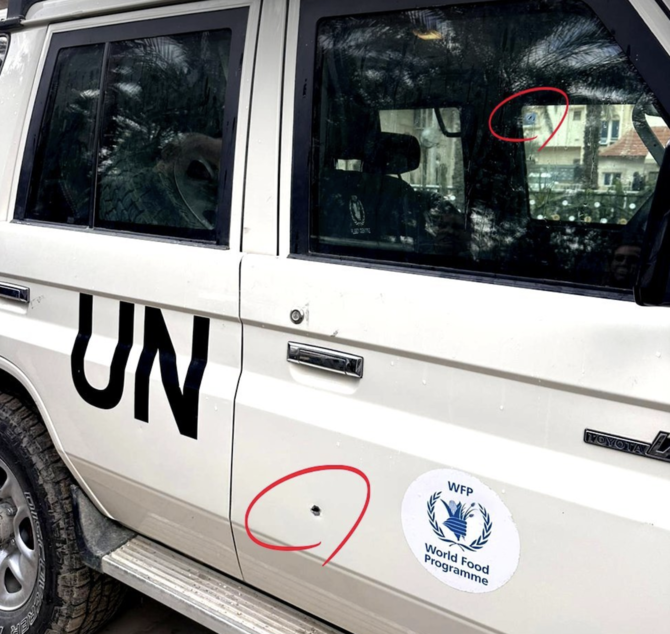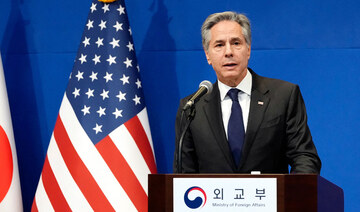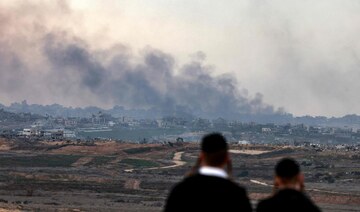DAMASCUS: A seven-year civil war that has left much of their country in ruins means solace can be hard to find for young men and women in Damascus.
But with an estimated 400,000 people killed in the conflict and millions displaced, younger Syrians are turning to a centuries-old ritual to help them forget the sorrows of everyday life: Shisha smoking.
Shisha pipes — water pipes used to smoke flavored tobacco — have a long history in the Middle East, but their popularity among youth in the Syrian capital has grown since the country’s descent into chaos in 2011.
At cafes, restaurants and swimming pools, young men and women can be seen crowding around the pipes amid clouds of smoke, chatting or lost in their own thoughts. Even the elderly have turned to the habit to forget their woes.
Central Damascus, a stronghold of the Syrian President Bashar Assad, has been relatively untouched by the violence elsewhere in the country, but the war still preys on people’s minds.
Legal
Smoking shisha pipes — also known as hookahs or argilehs — is one of the few legal ways for people to alleviate the strain and boredom that comes with living in a city largely cut off from the rest of the country.
Malak, a 22-year-old out with friends at the Bima Enno cafe in the Old City, told Arab News: “There isn’t much to do in Damascus now that we are trapped inside the city. I first tried hookah in 2012 and now I can’t imagine going out without the smell of its smoke.”
In 2016, the World Health Organization urged Syrian officials to “control tobacco and shisha consumption,” particularly among teenagers.
At an event to commemorate World No Tobacco Day the same year, Elizabeth Hoff, the WHO representative to Syria, warned that smoking shisha is 20 times more dangerous than smoking cigarettes. However, her warning appears to have gone unheeded.
Marwa Al-Naal lived in Damascus until last year, when she moved to Boston in the US. She told Arab News she became addicted to shisha smoking as a result of the civil war in Syria.
“When you ask people — myself included — why they smoke argileh or cigarettes so heavily, they say it’s a way to let off steam because they’re bored and the only thing they can do in their leisure time is go to a cafe and smoke.
“Argileh is being consumed in Damascus at unbelievably high rates. I have even seen pregnant women and children as young as 10 smoking.
“It has become a huge market, with tons of new styles and flavors to appeal to the public.”
The water bubble pipes can be found in spas, public baths and parks, as well as in seating areas outside cafes and restaurants.
They are banned only in shopping malls and inside cafes, where they are deemed to be a fire hazard.
Marah Al-Saleh, a Damascus-based psychologist, told Arab News the conflict in Syria has caused people even in the relatively secure confines of the capital to suffer psychologically.
“Hookah smoking is being used as a way to vent, and relieve anxiety and stress, but at the same time people tend to smoke because of peer pressure and the need to follow the latest social trends. The biggest proof of this is the minors we see smoking in public places in an attempt to mimic adults,” she said.
“The hookah-smoking phenomenon has significantly increased among younger age groups in the past few years.”
For Ali Asikria, a 24-year-old law student, smoking shisha is the best way to unwind after a long day at work and school.
“I make my own shisha at home, it is more economical that way,” he said. “Most cafes and restaurants charge 1,000 Syrian pounds ($1.94) to 1,500 Syrian pounds for one hookah and the sessions normally last 30 minutes.
With my salary, I can only afford to smoke hookah outside the house once or twice a month,” he said.



























